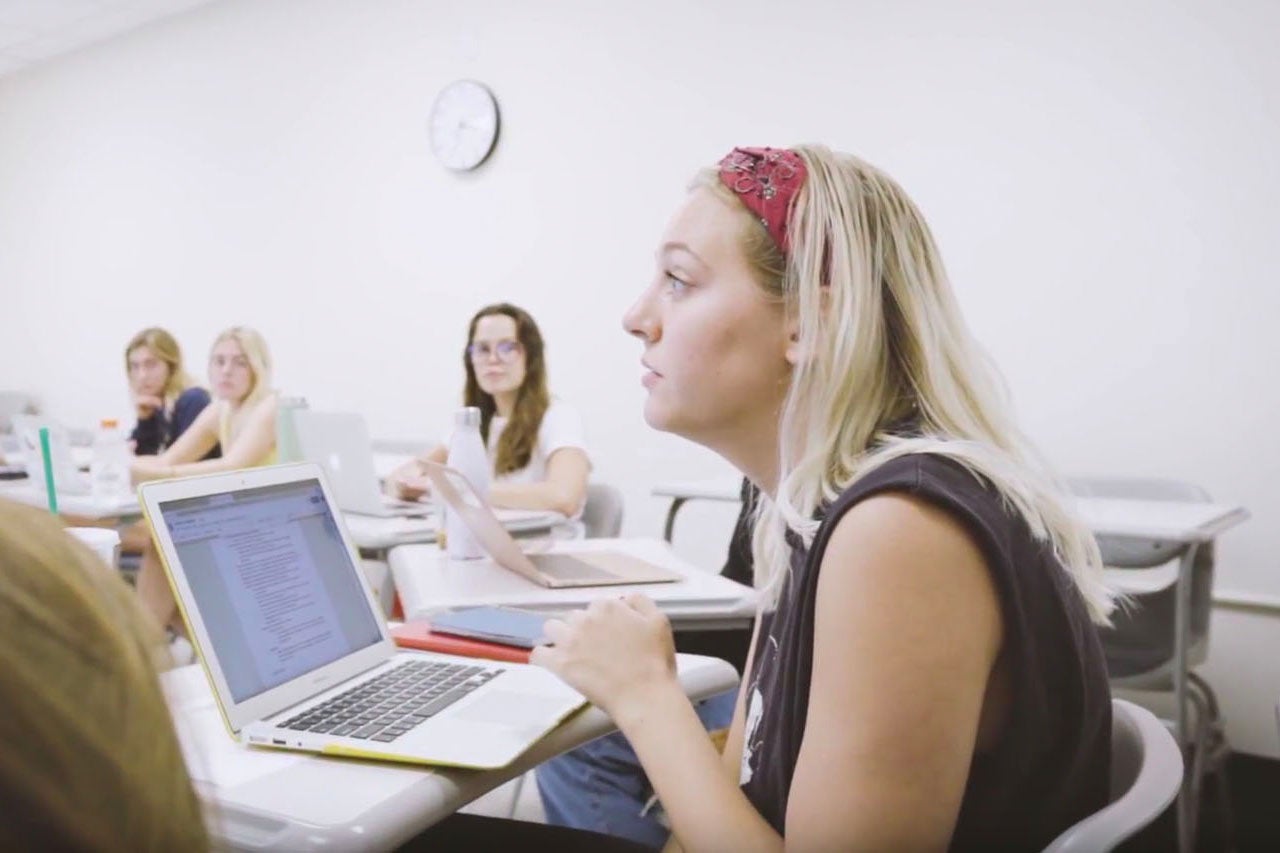At the College of Charleston, the academic curriculum is continually evolving to ensure that students learn the most relevant skills and knowledge for the 21st century. That’s why the English department recently introduced a new minor and concentration in Writing, Rhetoric and Publication (WRP).
Writing is at the core of nearly every form of communication, and that’s particularly true in a digital society. According to English professor Jacob Craig, who directs the WRP program, people are actually writing more today than ever before.
“Writing,” he explains, “is at the center of professional, public and everyday life. We use our phones to write for our own purposes and audiences. And in doing so, we produce writing in alphabetic text, yes, but we also make and share texts that include visuals, sound and moving images, too. And we share those texts publicly and even globally with networked audiences. That’s why today’s writers must be both practiced and flexible, able to adapt to the demands of different writing media, different writing environments and the expectations of different audiences.”
Courses included in the WRP minor and concentration address three areas of study: writing and rhetorical studies; digital and technical writing; and editing, style, and production. Through these areas of study, WRP students will gain experience doing everything from document design to editing to writing to designing for the web to search engine optimization to sound, image and video editing, and much more.
Craig says it’s imperative that students learn to effectively write for their respective purposes and audiences.
“Regardless of the field a student anticipates working in, clear, persuasive written communication is a tremendously valuable skill, and depending on your particular field, persuasive written communication can look and function differently than the writing people normally do for school or at home,” he says. “That’s why WRP focuses on the study and practice of writing to give students the knowledge and skills they need to write in unfamiliar or even unrealized contexts.”
Craig cites studies indicating that 75 percent of employers report looking for employees with strong written communication skills. Those same studies say that employers rank writing as the third most desirable skill behind leadership and collaboration.

Student Corley Frierson is among the first students to pursue a concentration in writing, rhetoric and publication. (Photo by Knox Smith)
“Our program will help students develop engaging content for audiences,” Craig says, “including audio, video and photographic elements as well as text. In addition, they’ll learn to work fluently in data visualization, creating infographics, diagrams, flow charts and more. One of the most desirable skills in the workplace at the moment is designing for the user interface, which includes knowing the most effective ways to display information on devices and in print.”
Grace Samuelson agrees. She’s a senior communication major who recently decided to include the WRP minor in her academic portfolio.
“The WRP program adds another layer to my knowledge base in the field of digital media,” she says. “The courses I have taken are hands-on and have allowed me to practice skills such as working with search engine optimization (SEO), creating social media content, writing content for various audiences, creating podcasts and many others that I have been able to use in other classes and in internships. I love that I am able to take courses that provide me with practical skills I know I will use often in the future.”
To help raise awareness about this new program, Craig maintains a blog and social media accounts for the program. He has also been orchestrating workshops for students this spring, including one on writing with HTML and CSS. Additional information and details about the kinds of jobs and internships that the WRP minor and concentration prepare students to compete for can be found on the blog page and the WRP program web page.





